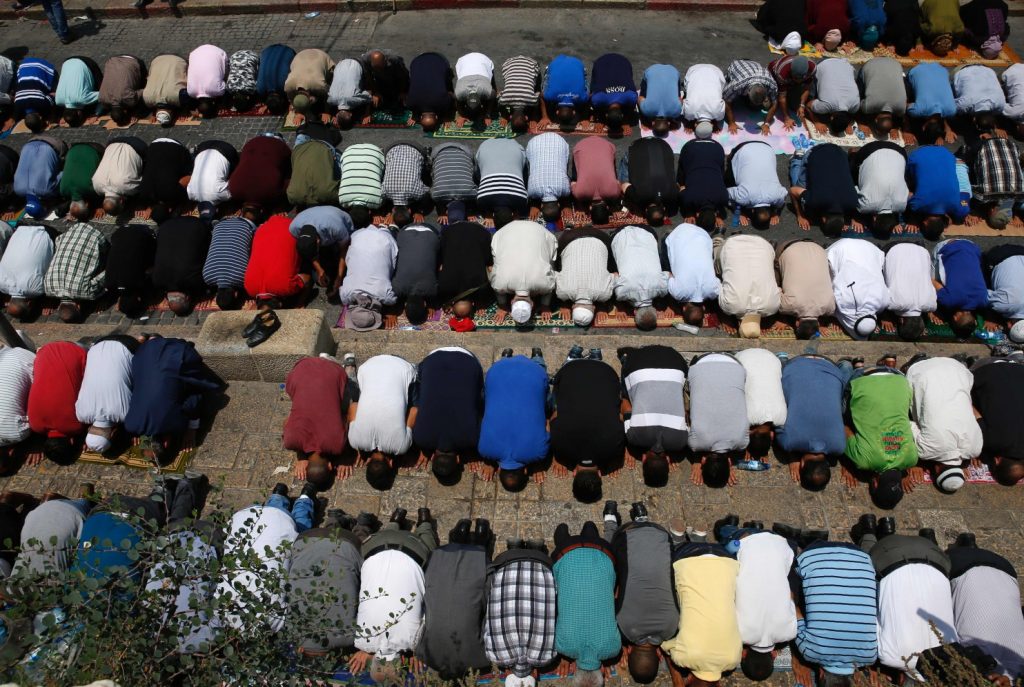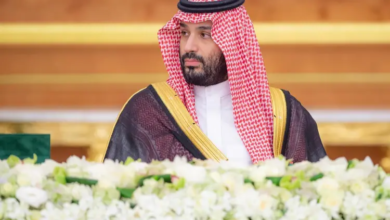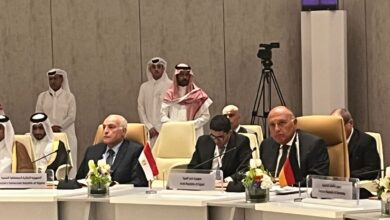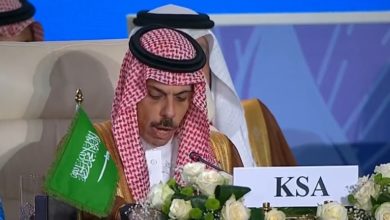Netanyahu faces pressure to remove metal detectors from Jerusalem holy site
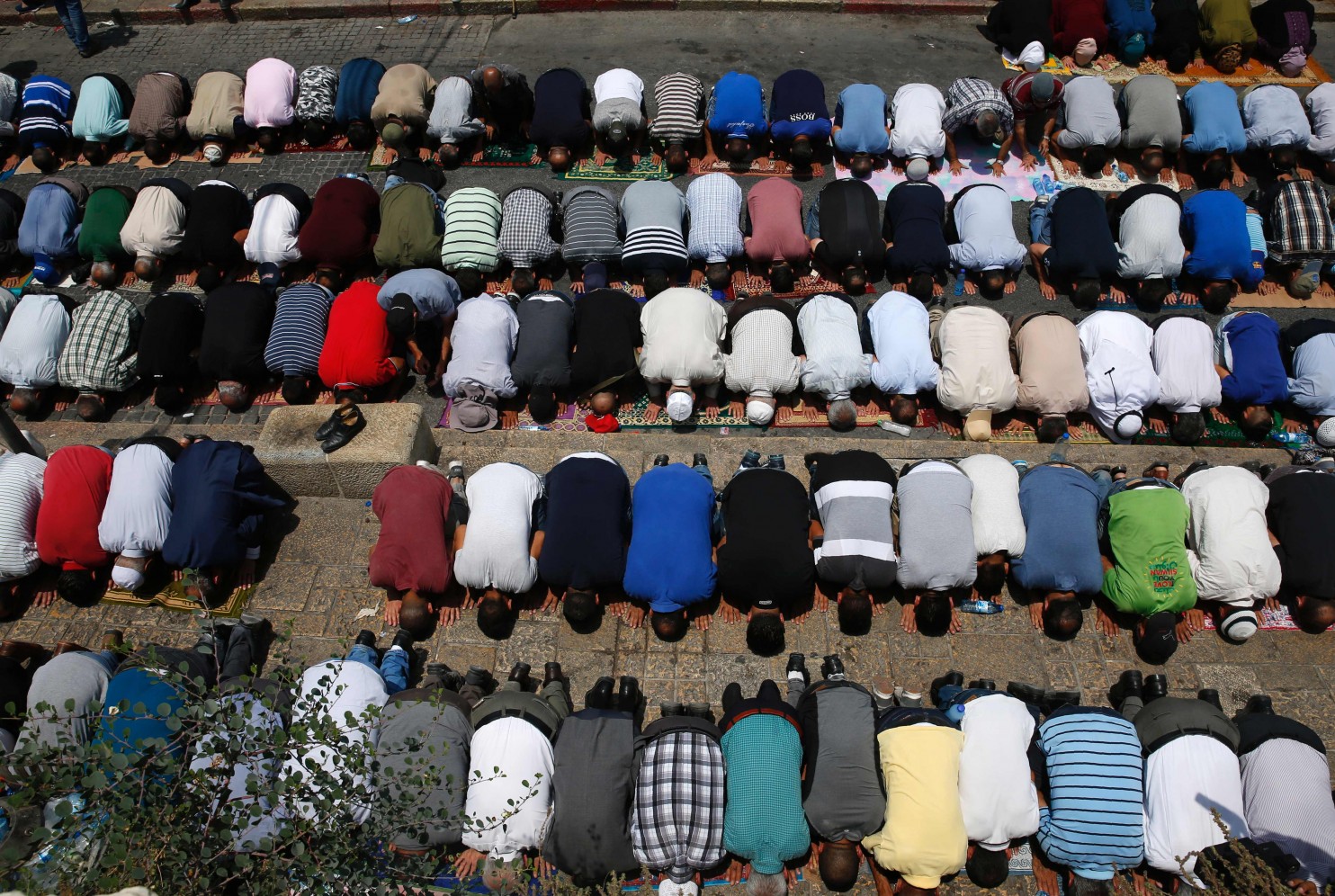
Metal detectors were installed Sunday at three of the compound’s nine entrances, following an attack last Friday in which two Israeli police officers were fatally shot by three Palestinian-Israeli gunmen. The gunmen, who Israeli police say came from inside the holy complex, were killed in a shootout with police.
As of Thursday, the prime minister’s position regarding the metal detectors had not changed after holding security consultations, an Israeli official told The Washington Post. The official spoke on the condition of anonymity because he was not authorized to talk to reporters.
In a statement Saturday, Netanyahu said: “I held a discussion with the top security leadership and I instructed that metal detectors be placed at the entrance gates.”
 A Palestinian protester holds a copy of the Koran, Islam’s holy book, and shouts slogans in front of Israeli security forces during a demonstration in Jerusalem’s Old City on July 20, 2017, against new Israeli security measures at the Al-Aqsa Mosque compound. (Ahmad Gharabli/AFP/Getty Images)
A Palestinian protester holds a copy of the Koran, Islam’s holy book, and shouts slogans in front of Israeli security forces during a demonstration in Jerusalem’s Old City on July 20, 2017, against new Israeli security measures at the Al-Aqsa Mosque compound. (Ahmad Gharabli/AFP/Getty Images)He maintained his position as tensions have risen in Jerusalem this week.
The holy site is revered by both Muslims and Jews.
For Muslims, who refer to it as the Haram al-Sharif, it is the spot where the prophet Muhammad is said to have started his night journey to Mecca. Al-Aqsa is Islam’s third-holiest site after Mecca and Medina.
Jews refer to the site as the Temple Mount. It is Judaism’s holiest site, said to contain the foundation stone of the world’s creation, the place Abraham was instructed by God to sacrifice his son, Isaac, and once the site of two Jewish temples.
Israel and Jordan share responsibility for running the site under a complicated status quo agreement that has been in place for decades. Any change to that agreement — by either side — is seen as a provocation. Under the arrangement, Muslims are allowed to enter and pray freely, while Jews and other visitors can go inside but are forbidden from praying there.
After last Friday’s attack, the compound was shut down by Israeli police as they swept the site for more weapons and tried to understand how such an assault could have happened. It was the first time that Muslim worshipers were not able to enter since 1969.
The site was reopened Sunday, but only for residents of Jerusalem. It was slowly reopened to other Muslims throughout the week, although with heightened security measures, including the metal detectors.
 Israeli security forces stand guard as Palestinian Muslim worshipers pray outside the Lions Gate, a main entrance to the al-Aqsa Mosque compound, July 20, 2017. (Ahmad Gharabli/AFP/Getty Images)
Israeli security forces stand guard as Palestinian Muslim worshipers pray outside the Lions Gate, a main entrance to the al-Aqsa Mosque compound, July 20, 2017. (Ahmad Gharabli/AFP/Getty Images)In a protest against the new security arrangements, the Waqf, or Islamic trust that runs the site day to day, instructed Muslim worshipers not to enter. Clashes have continued just outside the gates between Muslim protesters and Israeli police, who have used riot-dispersal methods, such as rubber bullets, to control the growing crowds.
A showdown between worshipers and police is expected on Friday, the Muslim holy day, unless Israel removes the metal detectors and relaxes its security.
“This is a new procedure in order to prevent people from worshiping and is given under the excuse of security,” said Ibrahim Awadallah, deputy minister of the Waqf committee in Jerusalem.
“We are not talking about a supermarket or a nightclub or an airport where you need an electric gate. The number of worshipers who come to al-Aqsa is huge. Metal detectors will delay them, not to mention humiliate them,” he said.
Awadallah said Muslims fear that Israel plans to divide the compound and give part of it to Jewish worshipers. Some senior Israeli ministers and political leaders have broached such a prospect in the past.
“I am leading the effort against lone-wolf terrorism in Israel, and one of the characteristics is that they copy each other,” said Israel’s minister of public security, Gilad Erdan. “Friday’s terrorists have been glorified, and others might follow in their footsteps when others realize the Temple Mount is a place you can smuggle weapons and explosives into.”
“Many, many mosques around the world have exactly the same security checks, and many use metal detectors. Any protest over this is really an issue over who has sovereignty at the Temple Mount,” said Erdan, who oversees Israel’s police force.
He said that both he and the police are urging the prime minister to keep the metal detectors in place.
“The police believe they can handle any unrest that might happen in Jerusalem,” he said.
Ultimately, the decision to keep or remove the metal detectors rests with Netanyahu. He is expected to make a final decision when he returns to Israel from Europe on Thursday evening.
Palestinians, Jordanians and the wider Arab world, particularly Saudi Arabia, have told Israel to relax security at the compound, the London-based Saudi newspaper Asharq al-Awsat reported Thursday.
A Palestinian official, who was not named in the article, said an American-brokered compromise calls for Israel to remove the metal detectors before Friday and have police use hand-held metal detector wands instead.
In a statement Wednesday, the White House said it was concerned about the tensions in Jerusalem and has urged Israel and Jordan to find a solution.
Israeli police spokesman Micky Rosenfeld said the police were ready to deal with the large number of people expected to show up at the mosque to worship on Friday.
“If the security measures stay as they are, then whoever goes through the metal detectors will be able to pray at the mosque,” he said.
Israeli legislator Yaakov Perry, a former head of Israel’s general security agency Shin Bet, called the situation in Jerusalem “fragile and sensitive.”
“It’s in the interest of everybody — Islam, Judaism, governments, people, Jews and Palestinians — to try to protect these holy places better than they were protected before the act of terror,” he said. “Every sensitive holy place in the world is protected, and I don’t think Israel adding tools to tighten security means there is a change in the status quo.”
Sufian Taha contributed to this report.

